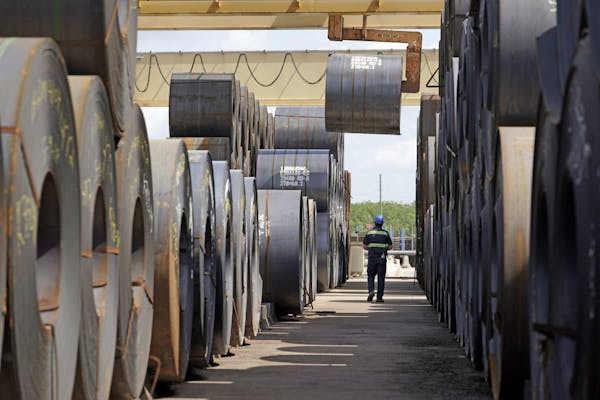BOONE, Iowa – U.S. Secretary of Agriculture Sonny Perdue on Wednesday said the Trump administration is "trying to lower expectations" over reopening trade with China, even as the U.S., Mexico and Canada draw closer to a revised North American trade deal.
"Good announcement with Mexico this last few days and then hopefully we can get Canada back into the fold by the end of the week or very quickly, have a renewed NAFTA and then we'll move on to our friends in the E.U., Japan, and then make sure that China knows they need to come along as well," Perdue said.
The loss of the Chinese market for American soybeans after the imposition of dueling tariffs has helped drive soybean prices down, which has widespread effects in Minnesota and the Upper Midwest.
Speaking at the Farm Progress Show, the largest outdoor farm-equipment show in North America, Perdue was asked how he responds to farmers who say "free trade not aid" in response to the announcement of aid packages for farmers hurt by the trade war with China.
"I say, 'Amen,' " he said. "There's not a farmer in America that would not rather have a good crop at a good price rather than a government check."
The show in a field outside of Boone, a small town 40 miles north of Des Moines, attracted farmers from around the world to see the most advanced products U.S. equipment makers are producing.
But for American farmers, the ability to take advantage of new technology is constrained by low corn and soybean prices and the trade war with China.
Perdue said he does not believe "irreparable damage" has been done to markets for American farm products. "It may take a little while to get those markets back but I think that's a legitimate question," he said.
Perdue said President Donald Trump is trying to fix what he perceives to be an unfair trade regime for American farmers.
"If we're going to have free trade we're going to have fair trade, and that's what the president has insisted and he's getting people's attention," Perdue said.
The administration this spring began to raise tariffs on other countries initially to help the U.S. makers of steel and aluminum. Those fees hit China, which produces more than half the world's steel, hardest.
Farmers were roped into the dispute when China retaliated in June with a 25 percent tariff on soybeans. For Minnesota farmers, soybeans are the leading agricultural export and China the top destination for them. The Chinese more recently added tariffs on dozens of dairy, poultry and pork items from the U.S.
China's squeeze on American food products led the administration to create a special $12 billion aid program, which will include $4.7 billion in direct payments to farmers to offset losses from diminished sales China and other countries. Of that, $3.6 billion is earmarked for soybean farmers. They can begin applying for funds as soon as next week, though they must have completed their fall harvest before doing so. Payments are capped at $125,000 per farmer.
U.S. trade officials have failed in two rounds of talks with Chinese officials since June to de-escalate the trade dispute. Perdue suggested Trump will ultimately need to deal directly with Chinese President Xi Jinping to resolve it.
Adam Belz • 612-673-4405 Twitter: @adambelz
Tennessee Volkswagen workers vote on union membership in test of UAW's plan to expand its ranks
Bitcoin's latest 'halving' has arrived. Here's what you need to know
BNSF Railway says it didn't know about asbestos that's killed hundreds in Montana town
Here's how Phish is using the Sphere's technology to give fans something completely different

